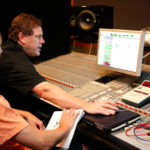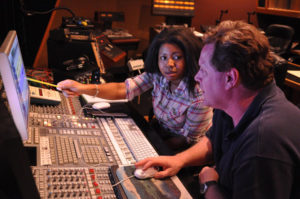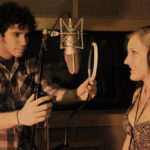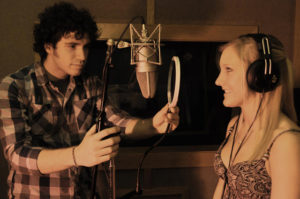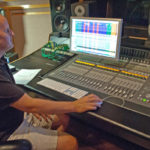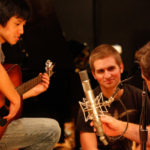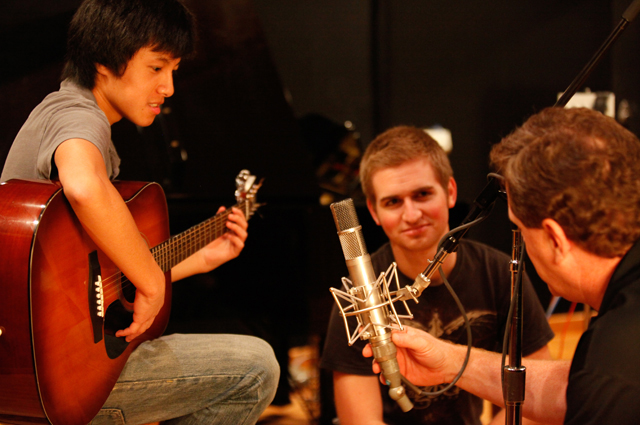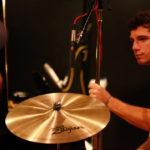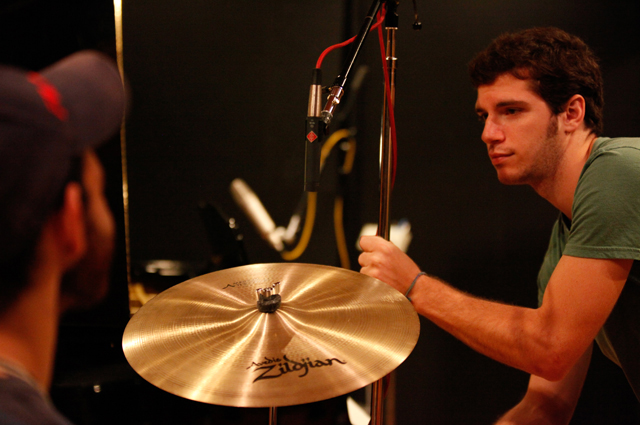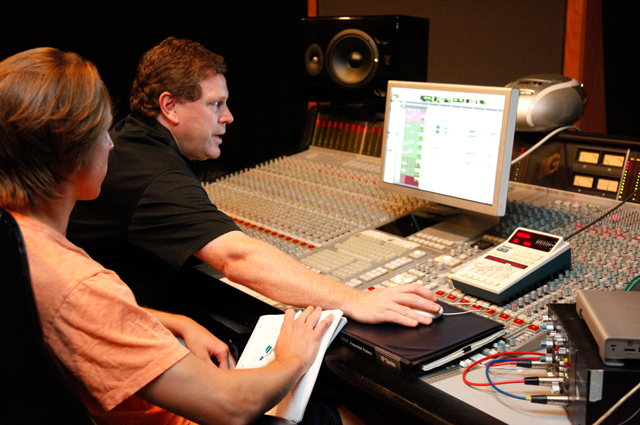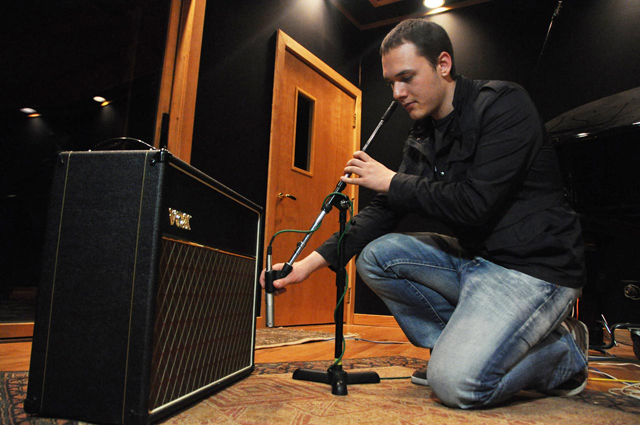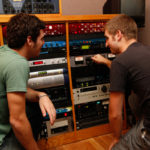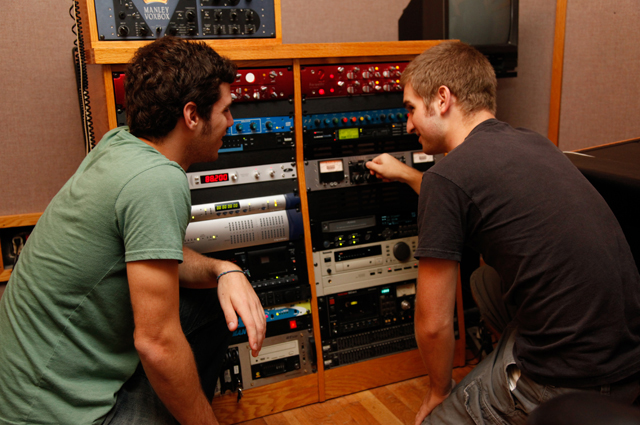Our two private audio engineering courses have similar descriptions, though differ in length.
Course description:
This 75 hour option is our most sought after avocational course where the student works privately with the instructor and focuses on various areas of audio engineering and studio use.
During discussions and an interview with the student, we semi-custom tailor a course that addresses their individual desires, taking into account their current level of audio engineering skills, and provide to each student the David Miles Huber “Modern Recording Techniques” handbook and a Cue Studios Center for Audio Engineering workbook.
Program time allotment:
– (65) hours of “ONE ON ONE” instruction with the engineer/instructor in both Cue’s control rooms and studios. The student will learn how to setup the studio, mic instruments and vocalists, work with musicians, use outboard processing gear (EQs, compressors, Effects, and plug-ins) get headphone mixes, and record and mix a REAL band or solo musician in the industry standard PRO TOOLS recording system.
– (5) hours of Studio C time where the student can practice their new audio engineering skills.
– (5) hours of unassisted “mixdown” time in Studio “A” or “B” at the instructor’s determination.
– Free use (5) hours after the completed course where the student can practice “solo” in Studio C (control room and studio) using Pro Tools HD, microphones, outboard gear, and instruments.
Topics covered include:
- Instrument setup and preparation
- Selecting the best microphone for your instrument or voice
- Microphone placement
- Audio signal processors (mic preamps, compressors, EQs, and effects)
- Analog and digital
- Recording, editing and mixing
- Mixing boards and audio recording software controllers
- Which speakers and why?
- Acoustics
Schedule a free interview
Call our studio manager at 703 532 9033 to schedule a meeting with an instructor. You’ll meet in the studio/classroom and observe first-hand the environment and equipment used in your program.
Fee: $5,950
If you would like to enroll in this avocational course, click here for our online shopping cart.
